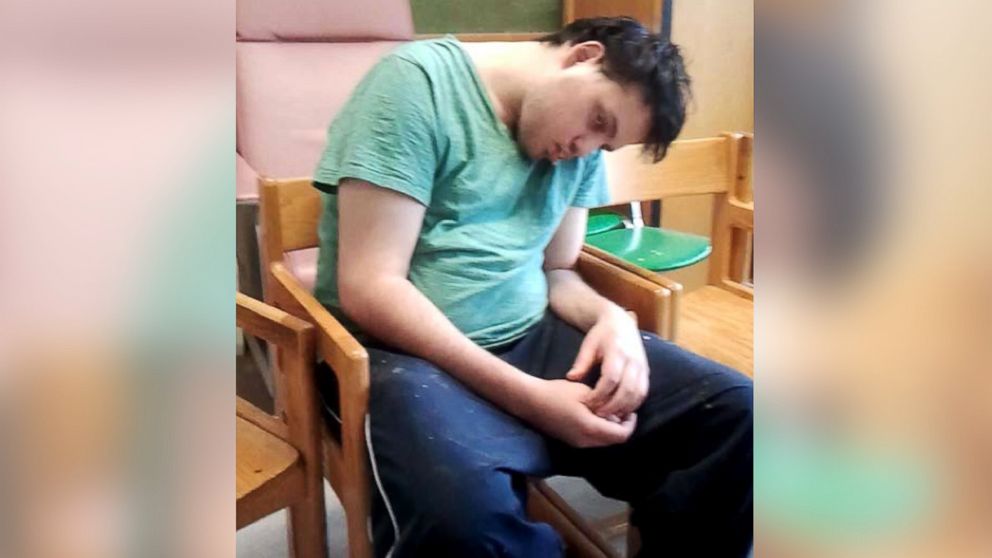Mentally Ill Men Allege 'Shocking' Isolation in Mass. Prison Hospital Lawsuit
Men never convicted of a crime denied reading, exercise or human contact.

May 2, 2014— -- Three men who were involuntarily committed to a Massachusetts prison for the mentally ill have filed a class-action suit on behalf of 150 other inmates against two state officials, alleging that they were subjected to harsh conditions of confinement that would “shock the conscience of a reasonable person.”
The three plaintiffs in the case have never been convicted of a crime, according to the lawsuit, which alleges that Bridgewater State Hospital systematically confines inmates for weeks and even months in solitary confinement without reading materials, exercise or “virtually any contact with human beings.”
The lawsuit was filed Thursday in Norfolk Superior Court against Department of Correction Commissioner Luis Spencer and Department of Mental Health Commissioner Marcia Fowler, alleging that prolonged isolation is a violation of state law. Also named in the lawsuit are Robert Murphy, superintendent of Bridgewater State, the Massachusetts Partnership for Correctional Healthcare and the Commonwealth of Massachusetts.
Massachusetts Department of Correction (DOC) officials told ABCNews.com today, “We are reviewing the complaint closely.”
“While we cannot comment on specific patients, we can say that the use of seclusion and restraint at Bridgewater State Hospital is a clinical decision and one we view as a measure of last resort,” said Darren Duarte, a spokesman for the DOC, which operates Bridgewater State. “These clinical decisions are based on each individual’s specific mental health treatment needs.”
Department of Mental Health spokesman Julie Kaviar said today, “We have received the lawsuit and are reviewing it carefully. The Massachusetts Department of Mental Health is a national leader in behavioral health and we are committed to providing quality, safe evidence-based care and services to individuals in our inpatient and community systems.”
Officials with the Massachusetts Partnership for Correctional Healthcare, which provides mental health services to the DOC, were not immediately available for comment.
RELATED: Man Legally Committed to Prison Hospital for Mentally Ill, Though Never Convicted
One plaintiff, identified as 31-year-old Jeffrey Doe, has autism, an intellectual disability and schizophrenia and has been isolated for 1,700 hours since November, according to the lawsuit.
“It’s one of the worst cases I have seen in my 33 years of practice,” Roderick MacLeish, one of the lawyers representing the plaintiffs, told ABCNews.com today. “Obviously, this man has no impulse control and functions at an extremely low level and is really not verbal. He was charged with assault and battery – this man who has limited or no executive function. He goes to Bridgewater prison but he is clearly incompetent to stand trial and will never get convicted.”
Doe was set to go to a group home last summer when doctors at a state mental health facility reduced his medication dosage and he hit a psychiatrist in the eye, according to his lawyer.
MacLeish alleges that according to prison records, Doe was put in seclusion for infractions like being “slow in responding to interview questions.”
“He has very limited verbal skills, cannot understand directions and lacks the ability to toilet himself or even express feelings of pain when he experiences an injury,” he said. “He is often left in a cell with urine and feces.”
READ: Parents of Sick Justina Pelletier Lose Custody
Another plaintiff who suffers from paranoia schizophrenia, Felipe Zomosa, has spent more than 4,000 hours in isolation since May 2013, according to the lawsuit. In January of 2014, he was subjected to 136 hours of mechanical restraint over six days.
Zomosa was sent to Bridgewater because he “lunged” at a psychiatrist after going off his medication. “He had a driver’s license before he did this,” MacLeish said. “He lived at home.”
MacLeish said an analysis of the statistics at Bridgewater State revealed two of the plaintiffs had spent more time in solitary confinement in 2013 than all 650 patients in Department of Mental Health facilities combined. “It shows that seclusion and isolation are out of control,” he said.
The lawsuit also alleges that the use of seclusion and restraint at Bridgewater State is "100 times greater" on a patient hour basis than at five other facilities run by the Department of Mental Health.
A third, Peter Minich, was isolated in a locked seclusion room at the intensive-treatment unit for at least 6,300 hours from January 14, 2013 to March 12, 2014, and restrained him to objects like his bed for 815 hours.




